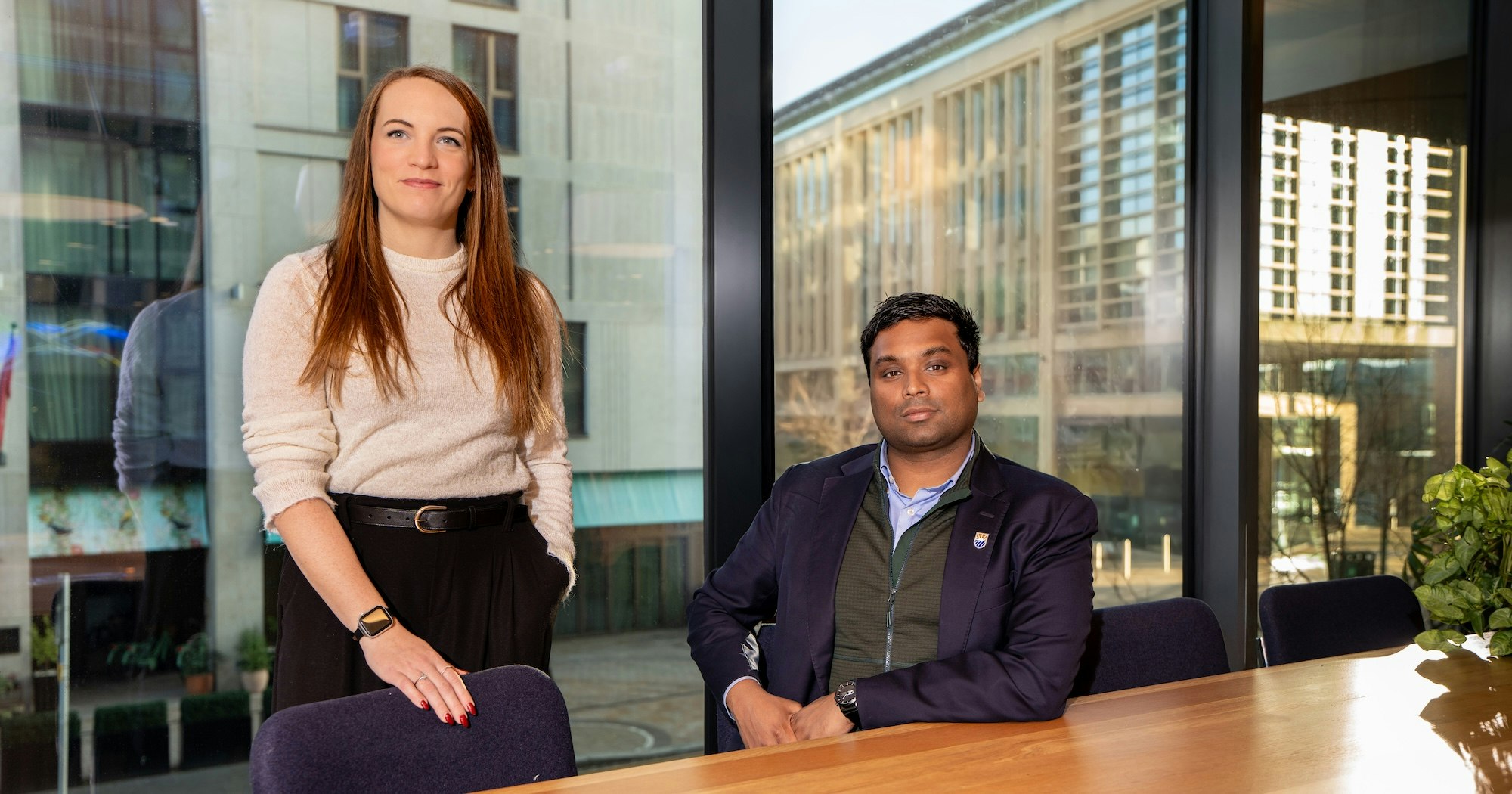Body scanning to detect health risks before organ failure, blood clots or tumours has long been popular among the health-conscious. Now, it’s going mainstream — not through primary care, but via tech startups opening clinics across Europe.
The Spotify founder Daniel Ek’s body scanning startup Neko Health was not the first to appear but has enjoyed the greatest momentum, creating enough hype for both VCs and other founders to jump head first into the diagnostics space.
One of them is the cofounder of AI biotech company Bios Health, Emil Hewage. The Cambridge-based startup, founded in 2015, has primarily focused on B2B applications for its neural interface platform.
As a side venture, it is now partnering with UK-based MYndspan, a startup using magnetoencephalography (MEG) to measure cognition through non-invasive brain scanning. By leveraging this long-established technology, MYndspan can map brain activity with millisecond-to-millimeter accuracy, according to the startup.
The two startups are now in the process of opening a brain-scanning facility in central London later this year.
From specialised care to direct-to-consumer
While body-scanning clinics (excluding those using MRIs) typically assess biomarkers available through standard primary care check-ups, brain scanning with MEG has traditionally been limited to research and specialised neurological diagnostics — such as epilepsy detection or pre-surgical mapping for brain tumours.
“MEG is the most accurate modality to measure the brain with, and non-invasively,” MYndspan cofounder and CEO Caitlin Baltzer tells Sifted. “With this centre, we could theoretically scan 8k people a year.”
MYndspan already conducts brain scans at Aston University in Birmingham where consumers pay £600. For the London clinic, they will initially charge a similar amount to a Neko scan — around £300.
“By cross-subsiding with Bios’ clinical trial and medical use cases we are making the d2c [direct to consumer] element increasingly accessible in price with our London site,” she says.

For customers, the process begins with a 15-20-minute session of gamified cognitive tasks, assessing short-term working memory and visuospatial skills. This is followed by 10 minutes in a MEG machine, where they simply rest with their eyes open.
“The machine has the presence of an MRI scanner. It sits in a magnetically shielded room, but it almost looks like an 80s old-fashioned hair dryer,” Baltzer says. “You’re just sitting in this quiet room and the hardest part is not to fall asleep.”
Thirty minutes later, the customer receives a report outlining their brain activity.
“Our focus has been in the neurodegenerative space, so very basically looking at neural slowing and functional brain age,” Baltzer says. “The idea being that when you actually start to measure this brain data longitudinally, you can start to identify these meaningful changes in your activity.”
“We know 40% of dementia cases are avoidable with lifestyle intervention, but how do you know you need that lifestyle intervention until it’s too late and you have irreversible decline?”
A strategic partnership
Aside from funding, what does MYndspan gain from working with Bios?
“Bios’ neural data infrastructure really supercharges the power of what we’re doing and dramatically increases the accessibility,” Baltzer says.
Bios has developed a neural interface platform that uses AI to decode and recode the signals between the brain and body to treat chronic health conditions. By connecting to a sensor placed on or near the body, the technology can track nerve impulse activity at millisecond precision, identifying which cells are firing and what messages they’re sending.

The tech could be used to treat conditions like heart failure, arthritis, diabetes and Crohn’s disease, which occur when the signals between the brain and diseased organs are failing. In the case of heart failure, for example, BIOS would be able to intercept that signal and rewire the brain, dramatically improving the health and well-being of patients.
Through its partnership with MYndspan, Bios initially focuses on neurological conditions such as epilepsy, Parkinson’s, and autonomic nervous system disorders for use in Brain-Computer Interface (BCI) trials, Hewage says.
“The ability to scale testing from just ten people to thousands per year at a single site is incredibly powerful,” Hewage explains.
He adds that MYndspan’s “access to one of the most powerful technologies [MEG], which has been incubated for decades,” made it a natural partnership.
Hewage adds: “I think it’s best done in this kind of collaborative way, where we’re a back end.”
Read the orginal article: https://sifted.eu/articles/bios-myndspace-neko-health-style-brain-centre/


